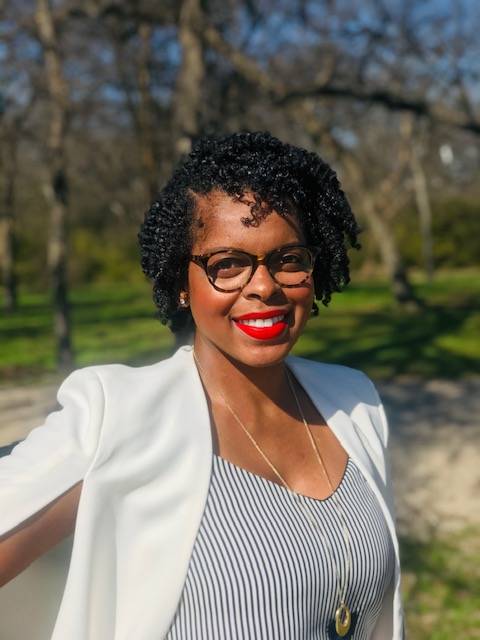By Aretha Flucker
The notion of freedom in its purest form is like an elusive butterfly. It only flutters near for a moment, allowing us to see its beauty, but ultimately leaving our presence. We are left with a yearning to experience the butterfly’s essence again, and inside us, a seed of desire to have its presence with us always is firmly planted in our souls. For many Black people, African Americans, Caribbean Americans, Afro-Latinx people, and anyone sun-kissed living in America, true freedom continues to flutter in and out of our lives. Through significant periods of history such as the Emancipation Proclamation in 1863, the subsequent official notification and implementation of this Proclamation in Texas in 1865, the Civil Rights Act of 1866, and the Civil Rights Act of 1964, we have celebrated an acquiescence of America to give us freedom. As we reflect on this history, we are invited to consider what freedom truly means.
On January 1, 1863, President Abraham Lincoln put into effect the Emancipation Proclamation, which had been drafted months prior. This Proclamation legally freed all enslaved persons in Confederate states, or at the time, states who were in opposition of the Union. While these enslaved bodies could no longer be exploited legally, the elusive nature of freedom manifested itself once again. Lincoln’s legislation was faulty, and it was largely contingent on the Civil War necessitating enslaved persons’ freedom. In response, the 13th Amendment, as problematic as it is for incarcerated persons who are exploited and forced into slavery once again, was passed and gave legitimacy to freedom beyond the war. Formerly enslaved people were now free; however, they had already spent more than two years without this knowledge. They continued to be tethered to the violence of war and subjugated to the refusal of slave owners to let them go. Emerging from all of these feelings of hopelessness and helplessness comes the day of realization that the obscurity of freedom was finally ceasing to exist – June 19, 1865. This day is now known as Juneteenth.
The meaning of Juneteenth is intricate and deeply nuanced. It celebrates a level of freedom that Black people in Texas had never experienced. As other states had already shown a decline in the number of enslaved persons, there had been glimmers of this type of existence and all of the potential attached to it. For Texas, however, the abolishment of slavery seemed to be a distant dream that would never come to fruition. Amid the celebration of new possibilities, the shackles of enslavement threatened to encroach upon freedom. General Orders, No. 3, released in Galveston, Texas, announced and reiterated that all slaves were free. With this order being military-issued and legally backed, it would seem that nothing could impede upon freedom. Yet, imbedded in the document was terminology that perpetuated an enslaved mentality and attempted to extinguish this newfound world of opportunity.
It was written, “The freedmen are advised to stay at their present homes, and work for wages. They are informed that they will not be allowed to collect at military posts; and they will not be supported in idleness either there or elsewhere.”[1] In essence, freed people were encouraged to stay on plantations where they had been brutalized and traumatized. If they desired to leave, they had no resources or places to go. As people with little to no possessions and no land, how could they live independently of former slave owners? How could they become untethered from the shackles that were no longer there physically but present psychologically and emotionally?
With all of the uncertainty, the good news is that they were free to pave a new path and redefine their lives. Unlike any other circumstances in their lives as enslaved people, they were free to imagine. They were liberated to experience whatever may come as a free person. It may seem like their futures were destined to be filled with more suffering and hardship, and perhaps they were. However, there is something to be celebrate about overcoming hardships knowing now, rather than building wealth for others, your work would benefit your children and future generations. It is worth rejoicing over the ability to dream of a future of which you are the architect. Juneteenth became synonymous with the ability to create, build, and imagine. Juneteenth invited the elusive butterfly to come back, and this time, remain.
As I visualize this great celebration, I invite Black people everywhere to whisper to our ancestors. Tell them, “Look. See what the foundation you laid and seeds you planted have cultivated. Freedom has a new meaning! It means we can express ourselves and be whoever we want. We are free to pick up the torch of imagination and create even more possibilities for those ahead of us!”
Now, more than 150 later, Black people once again stand at the intersection of freedom and imaginations of existence. Afrofuturism once again extends the invitation for Black people to be free to imagine a future of self-expression and the celebration of Blackness. To unpack the concept, Ytasha L. Womack submits, “[It is] both an aesthetic and a framework for critical theory. Afrofuturism combines elements of science fiction, historical fiction, speculative fiction, fantasy, Afrocentricity, and magic realism with non-Western beliefs.”[2] Years before Afrofuturism was coined in terminology, Octavia E. Butler explored injustices toward Black people through science fiction. While her work was not as popular in her time as it is now, it illuminated the possibility of representation of Black art and narratives in spaces in which they were seldomly found. Most importantly, Butler’s work paved the way for Black people to reimagine how we position our interests and talents in the world. With this reimagination comes the freedom to display our identities as intellectuals in new ways. Whereas the world oftentimes suggests that we do not inhabit the world of science fiction and futuristic art, we do.
Afrofuturism resonates with me in ways I did not anticipate. As a person who grew up almost living in a library, I am emboldened to express the “nerd” side of myself that I often suppress. I have always been interested in a multitude of topics, and I was always that kid who would read several books per week and excitedly look forward to doing it again the following week. As an adult, I continue to be an avid reader, and now, I couple my research and interests with the arts as a means to re-envision Black existence. As an Afrofuturist, I am free to visualize the future I want to see for Black people and use my ministry as an avenue to create that future. It is a future in which Black culture is celebrated, and it is not white-washed or Americanized. It is a future where Black thriving is normalized, and it is displayed visually in the arts and all of its vastness.
This freedom to imagine, explore, and create is one that I believe is akin to what the freed Texans experienced on Juneteenth. If our existences were paralleled, we would celebrate the freedom to be emboldened to go forward into the world and create new narratives about Black people and our futures. As I visualize this great celebration, I invite Black people everywhere to whisper to our ancestors. Tell them, “Look. See what the foundation you laid and seeds you planted have cultivated. Freedom has a new meaning! It means we can express ourselves and be whoever we want. We are free to pick up the torch of imagination and create even more possibilities for those ahead of us!” Together, let us watch the butterfly in all of its literal and symbolic freedom come and flutter all around us. With each flap of the wings, freedom resounds.
[1] Edward T. Cotham, Jr. Juneteenth: The Story Behind the Celebration (Kerrville, TX: State House Press, 2021), xii.
[2] Ytasha L. Womack, Afrofuturism: The World of Black Sci-Fi and Fantasy Culture (Chicago, IL: Lawrence Hill Books, 2013), 9.

The Rev. Dr. Aretha Flucker joined Brite Divinity School in 2020 as its first Director of Community and Spiritual Life. Rev. Dr. Flucker’s ministry has focused on spiritual formation, social justice activism, leadership development, and community empowerment. A preacher, she has served within communities of faith in New York City, NY and Humble, TX. She is excited to continue to help shape communities of faith and was named the Director of Baptist Studies in 2021. Rev. Dr. Flucker received her Doctor of Ministry degree in Transformational Leadership at Boston University’s School of Theology in May 2022. She centers her ongoing research and consultancy work on reimagining the church with a hybrid model amid a decline in attendance and engagement. Rev. Dr. Flucker currently serves on the Alliance of Baptists’ Board of Directors and contributed a book chapter, “Reimagining the Cross: Jesus, a Womanist Co-Sufferer and Co-Conspirator” in the Alliance’s Taking on the Cross (Nurturing Faith Books, 2022).




Recent Comments